
REVULN 19Q4 is an international security conference taking place in 2019 December 11-12 in Hong Kong at the Best Western Plus Hotel Hong Kong. The event is entirely organized and financed by us without any external sponsors. The conference is focused on the following topics with presentations covering countries and areas of Asia: - Fake news, disinformation and propaganda - Open topic on digital security, cybersecurity, OSINT, decentralization and so on The topics are presented from different points of view and focused on the countries and personal experiences of the 10 international speakers. Each presentation covers a slot of 45 minutes inclusive of questions. A 15 minutes break is available after each presentation for networking and privately talking with the speaker. Main features of the event: - no sponsors, no partners, no sponsored talks, no marketing or promoted business - invitation-only and free for selected guests - sessions covering specific target topics - focused on the region where the event is hosted (Asia) - improved networking with people from different countries and fields Post-event blog post and photos available.
The event is invitation-only and free. No tickets available.
| Dec 11 | Wednesday - Fake news, disinformation and propaganda |
| 10:00 | Entrance and welcome coffee |
| 10:30 | Mei NELSON (US) Hacking and Trolling: The Changing Face of Hacktivism in the Disinformation Age |
| 15 minutes break for networking | |
| N/A | Yono REKSOPRODJO (Indonesia), Fahmy YUSUF (Indonesia) Information Warfare in Cyberspace: The Spread of Hoaxes in Social Media (Case Study: Jakarta Gubernatorial Election 2017) |
| 11:30 | Sebastien BOURDEAUDUCQ (Hong Kong), Stewart MACKENZIE (Hong Kong) A talk about nothing (How to create an ultra-high vacuum system) |
| 15 minutes break for networking | |
| 12:30 | Break |
| 14:00 | Masayuki HATTA (Japan) Debunking toxic "Matome sites" in Japan |
| 15 minutes break for networking | |
| 15:00 | Chung-Jui LAI (Taiwan) Polarization of Political Opinion by News Media |
| 15 minutes break for networking | |
| 16:00 | Rachel BLUNDY (Hong Kong) Overview of AFP Fact Check |
| 15 minutes break for networking | |
| 17:00 | End |
| Dec 12 | Thursday - Open Topic |
| 10:00 | Entrance and welcome coffee |
| 10:30 | Isao MATSUNAMI (Japan) Digital security in japanese journalism |
| 15 minutes break for networking | |
| 11:30 | Mahendra TIPALE (India) Automating Human-like Data Collection from the Deep Dark Web at Scale |
| 15 minutes break for networking | |
| 12:30 | Break |
| 14:00 | Stewart MACKENZIE (Hong Kong) The edge of the Internet is becoming the center |
| 15 minutes break for networking | |
| 15:00 | James GRIFFITHS (Hong Kong) The Great Firewall of China |
| 15 minutes break for networking | |
| 16:00 | Trey MENEFEE (Hong Kong) OSINT HK: Challenges and Opportunitiea of a Anonymous Crowd-Sourced OSINT Model |
| 15 minutes break for networking | |
| 17:00 | End |

Security Principal - Accenture Security / iDefense Mei Nelson is a Security Principal at Accenture Security/iDefense. She focuses on monitoring, researching, analyzing and reporting on cyber threat activity in the East Asia region. She also provides strategic analysis of cyber threat actors, behaviors, motives, and trends. Mei is a board member of RSA Conference Security Scholar program. She holds a MS in Management of Secure Information Systems from George Mason University. Mei has previously spoken at CODE BLUE conference in Tokyo, DRAGONCON in Hong Kong, and the Chinese Internet Research Conference at Leiden University, the Netherlands and National University of Singapore.
[PDF] 1,775 KB
[SlideShare] Hacktivism, commonly known as actions by individuals or groups that using hacking skills to spread a specific message and bring attention to a political or social cause, has risen and then fallen globally in the past five years. In the meantime, hacktivist activities have evolved, with an increase in state-sponsored hacktivism using false hacktivist personas, and the appearance of hacktivists who could also be described as "entrepreneurial geeks." Not all hacktivists break into network systems; some perform troll activities to create online disruptions on social media to accomplish their goals. The recent phenomenon of fandom nationalists turned trolls adds another layer to the many roles of hacktivism. This talk will discuss the role of hacktivism in information operations through case studies of hacktivist activities from various regions and countries, and provide insight into the structure, organization, motivations, goals, tactics, techniques, and procedures (TTPs) of these hacktivist groups. The talk will also analyze how other threat actors utilize hacktivists to conduct information operations. Lastly, the talk will reflect on the future direction of global hacktivism in information operations as geopolitical tensions among major powers increase and nation-states reposition their cyber defense posture. Hacktivism is evolving in the disinformation age with traditional hacktivist activities of breaking into systems and emerging hacktivist activities of creating online disruptions without breaking into systems. Hacktivist actors are not only non-state actors, but also nation state actors who use false hacktivist personas conducting information operations.
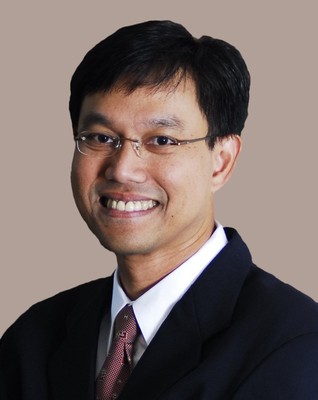
Lecturer at Indonesia Defense University (UNHAN) - DR. Yono Reksoprodjo a.k.a Agus Hasan Sulistiono Reksoprodjo was born in Jakarta 1962. Yono was graduated as a Naval Architect from the Mechanical Engineering Department, Faculty of Engineering, University of Indonesia in 1987. He completed his higher degree as Doctor of Philosophy in Computer Aided System Engineering with the emphasis on Reverse Engineering Technology from Imperial College, University of London, United Kingdom in 1994. • On his professional life, Yono had gained wide experiences starting from engineering design works to general managements that covers world class prestigious industries such as The Indonesian Aerospace (PTDI), Rolls Royce Aero Engine UK, Rover UK, Milliard Design Australia, Shinwa Engineering International and ARACO (a Toyota subsidiaries) in Japan. - His other activities covers; academic works as lecturers at prestigious universities in and out of the country including the Military and Police Staff and Command Schools and; acting as advisor to many defense and security related Governmental Institutions. Yono belongs to professional organization such as the Indonesian Institution of Engineers (PII), the Indonesian Chamber of Commerce and Industry (KADIN) and The Air Power Centre of Indonesia (APCI). Since 2005, Yono became more active engaging with social and humanity works through organization known as the Persyarikatan Muhammadiyah and, the Global Rescue Network (GRN) where then he passed the fit and proper test to become the steering committee member for the Indonesian Disaster Management Agency (BNPB) in 2009-2014. From 2011 onwards, Yono has been also actively involved in the management of the Indonesian Business Council for Sustainable Development (IBCSD) and later with the Indonesia Business Coalition on Women Empowerment (IBCWE) and the Indonesia Global Compact Network (IGCN). His interests in ICT and asymmetric strategy studies brought him to become the advisor to the Commander in Chief of the Indonesian National Defense Forces (TNI) for C4ISR from 2006-2014. Earlier in 2011, he was invited on a National Security Visiting Fellowship Program as an adjunct lecturer/professor by the Australian Department of Defense to the Australian Defense College, University of Canberra and, the Australian National University. In between 2015-2016, Yono accepted the invitation from the Coordinating Ministry of Politics, Legal and Security of the Republic of Indonesia to seat as the advisor to the Coordinating Minister on Cybersecurity topics. - Today, DR. Yono Reksoprodjo seats as member of the National Task Force for the National Science and Technology Research Planning in Defense Sector of the Ministry of Research, Technology and Higher Education of the Republic of Indonesia and, as the Vice President of Corporate Affairs of Sintesa Group and, the Director for Business Development of PT. TIRA Austenite, Tbk; besides maintaining his academic role as the Assistant Professor on Asymmetric Studies at the Indonesian Defense University (UNHAN)
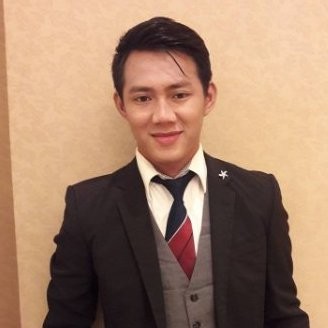
Post graduate student at Indonesia Defense University (UNHAN) - Fahmy Yusuf was born in Jakarta 1992. He was graduated from University of Indonesia Major in History of Science, Faculty of Humanity in 2015. He completed his master degree in Asymmetric Warfare program, Indonesia Defense University (UNHAN) in 2018. Because of his curiosity in digital media and social media, Fahmy developed Ruang Rakyat (Public Space) in 2017 as his start up in digital media which explain current issues especially political issues. - On his professional life, Fahmy had experiences starting in journalistic as television reporter at TRANS 7 (Transcorps Media). Then Fahmy became social media strategist in LSI Denny JA (the oldest political consultant company in Indonesia). When works as a consultant Fahmy also learning and research about AI and Social Media Algorithm and its impact to political choice and behavior. - Today, Fahmy Yusuf seats as expert staff in The House of Representative Republic of Indonesia helping the council members to make laws for the country. Besides continuing his several research and developing Ruang Rakyat.
[PDF] 637 KB
[SlideShare] The rapid development of information and communication technology brings significant change to human life. In the past, people have been getting information through conventional media such as newspapers, radio, and television. Today, the public relies heavily on digital media consisting of social media and online media that are in the grip within the internet network which provides wide-ranging information in speedy manner. The phenomenon of hoaxes in social media is part of the information warfare in the cyberspace dimension. Hoaxes as tactic of choice in propaganda defined as misleading information attacks to various aspects, covering to include health, economy, disaster-events, and politics. People who are lacking in understanding propaganda tactics like how the news and information addressed in the digital media are often fooled by hoaxes that maybe appear as texts, pictures or videos. The spread of hoaxes may get uncontrollable due to the many parties who deliberately spread the hoaxes for a particular interest with anonymous accounts, fake accounts and so-called bots. The transmission of hoaxes as global phenomenon today, affecting many countries. Hoaxes that are spread in cyberspace are difficult to control without solid cooperation between government and society. This means of bad intension today by spreading news used as an asymmetric weapon extensively exercised during any political election period. This paper is about an analysis of hoax cases occurred in the time of Jakarta Gubernatorial Election 2017 as a case study.

Founder of Milkymist (open hardware FPGA-based video synthesizer) and M-Labs Ltd (ARTIQ physics experiment control system and more). Programmer, electronics engineer, experimental physics enthusiast.

Founder, CEO and CTO of fractalide.com
[PDF] 9,280 KB
[SlideShare]
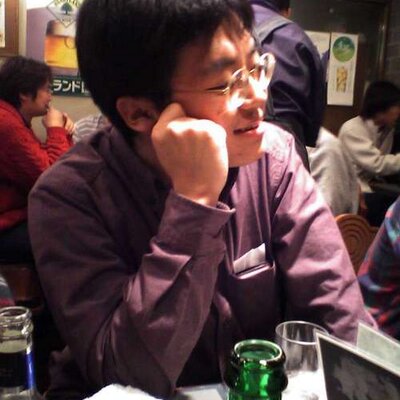
Associate Professor, Faculty of Economics and Management, Surugadai University My day job is an economist/organizational theorist, but I am a coder (a GNU and Debian Developer) and in recent years I also research techno-privacy issues and hacker culture in general. A vocal advocate for hacktivism and the internet freedom, I have been involved with several Internet-based activisms in Japan, such as Movements for Internet Active Users (MIAU), an organization made models of EFF/ORG, as a founding member. I also serve on several committees of the Japanese government, including the committee for AI Network Society.
[PDF] 2,094 KB
[SlideShare] "Matome" sites (pronounced "maa-tou-mee", roughly means "edited / curated") is a unique byproduct of Japanese online culture. They aggregate comments from other sources including anonymous BBSs (typically 2ch / 5ch) and present them in a readable way (with online ads). Matome sites have been known as sources of disinformation and defamation, and in recent years some of them became go-to places for "Netouyo" (Japanese internet far-rightists) and quite influential. In this presentation, I will give you a brief introduction of Japanese matome sites and their influences, then explain the recent efforts to debunk some of the most notorious ones. Based on the judicial records, leaked internal documents, etc., the presentation will explain the entire ecosystem of Japanese matome sites. Main points: - The business model of matome sites - The rise and fall of "Hoshu Sokuhou", one of the most influential matome sites. - How "netgeek" operates, a notorious viral media. - Debunking "Anonymous Post", or how to find out the anonymous operator of a matome site.
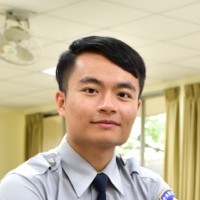
Sub-Lieutenant, police of information management at Wanhua Precinct, Taipei city police department, Taiwan Chung-Jui Lai is a graduate student at Department of Information Management, College of Police Science and Technology, Central Police University, Taiwan. Besides learning skills of police, he studied a lot on the area of information, such as doing the penetration test with police agency, short-term experience of being a white-hat hacker for National Center for Cyber Security Technology (NCCST). In addition, in 2019, he studied in the College of Communication and Information, Florida State University, Tallahassee, FL, USA. His current research interests include information security, cybercrime investigation, digital forensics, computer languages, social media tracking, social network analysis, and open sources.
[PDF] 3,621 KB
[SlideShare] In 2016 US election, social media played a vital role in shaping public opinions as expressed by the news media that have created the phenomenon of polarization in the United States. Because social media gave people the ability to follow, share, post, comment below everything, the phenomenon of political opinions being spread easily and quickly on social media by the news agencies is bringing out a significantly polarized populace. Consequently, it’s very important to understand the language differences on Twitter and figure out how propaganda spread by different political parties that influence or perhaps mislead public opinion. This talk will introduce the relationship among the social media, public opinion, and news media, then suggests the method to collect the tweets from Twitter and conduct sentimental and logistic regression analysis on them. Furthermore, this talk points out the special aspect on the relationship between the polarization and the topic of this conference (fake news, disinformation and propaganda). Main points: - situation in Taiwan - research on fake news - methods for fighting fake news

Editor at AFP Fact Check Rachel Blundy is a fact-check editor for Agence France-Presse, focussing on disinformation in Asia. In Hong Kong, she formerly held reporting roles with news agency Storyful and the South China Morning Post after several years working as a journalist in London.
[PDF] 4,757 KB
[SlideShare] General overview of AFP's work in the region, examples of disinformation and how the team debunked them, work with Facebook to take enforcement action to prevent their further spread online.
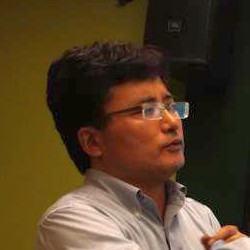
Data journalist/editor for Chunichi Shimbun, Japanese daily newspaper in Japan. He has been organizing, with support from Japan National Press Club, biweekly computer-assisted reporting (CAR) workshops in Tokyo. Reporters and desk editors from competing newspapers and networks gather there to learn how to use computers in daily reporting. His main interest has been in digital visualization applied in journalism. - Mt.Ontake eruption killed 57 hikers - Cartographic analysis of general election in Japan - Why solar eclipses are so rare?
[PDF] 15,236 KB
[SlideShare] Massive leaks such as Wikileaks, Panama Papers and Snowden have made journalists realize that good old "just-meet-people-shoot-photo" days are gone. Getting leak documents over the internet, grappling with data format, processing text with machine learning and protecting sources from surveillance are all getting new-norm for journalism. However reporters, generally and historically, would be the last species to understand digital technology and data-oriented thinking. I would like to share my experiences of teaching digital security to journalists and discuss difficulties of journalism in this post-truth world.
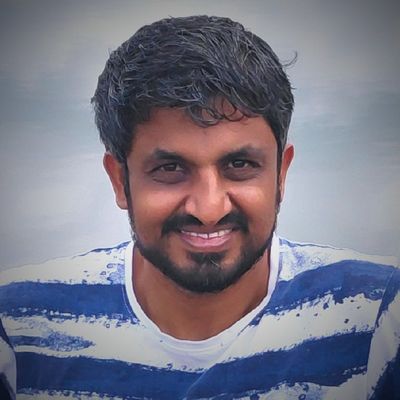
Manager, Software Dev, Fireeye Inc. Mahendra is an Engineer working as Manager Software development at Fireeye Inc, India. Majorly contributing towards automating processes related to data collection and analysis. Have core interest in automation, cyber security, software development, Big data, analytics, ETL, Linux. Previously, Mahendra have worked as System Engineer, Integration developer at various organizations in Big data, Telecom value added service firms to gain exposure on multiple technologies. He has been based out from Pune, India. He have worked at Mumbai, Paris and Singapore for short duration. Apart from work and technologies, Mahendra loves doing painting, travelling, gaming and spending time with family and friends. He is active on Twitter https://twitter.com/mahendraT
Underground forums serve as a huge source of information on emerging threats and threat actors. This is especially the case for newcomers looking to learn from seasoned players leading to formation of organized crime groups. Many sophisticated cybercrimes have originated from underground discussion. The insights learned in the depths of the Dark Web are combined with a collection across multiple sources like discussion forums, marketplaces and paste sites produces interesting dataset. Collecting such data in a structured format provides a way to analyze how the underground works. Moreover, continuous flow of live scraping from multiple sources would increase the ability to narrow down the real culprits more effectively to reduce the damage by margin. During this presentation, we will focus on how this can be achieved. Presentation will focus on: 1. Intro: Cybercrime. What to monitor and why? Why another scraping engine? 2. Purpose to achieve with data collection methods and monitoring: Flexibility, Scalability, Extraction, Undetected (FUD), Efficiency, Human factor. 3. Tools: python3, Selenium, Firefox, Human factor, Message broker. Data flow and components 4. Roadblocks and solutions: login, 2fa, ddos-protectors, CF, tor hosting, network, restricted access, closed sources, languages, Competition within, scaling up 5. Results after 2 years: 100+ targets, 50M+ stolen financial product metadata which is being sold for 1.5B+ USD and more... 6. Conclusion: Bringing it all together
[PDF] 700 KB
[SlideShare] The edge of the Internet is growing exponentially. NetFutures predicts by 2027 we'll have 1000+ devices per person. Data is generated on the edge of the Internet and due to sociological and technical reasons the Internet, in the form of social networks, amplifies any voice no matter how small. Leading to the bombardment of information, thus filtering out manipulations and fake news from relevant information becomes harder. This talk discusses the circumstances leading up to the current situation we're in and unveils a new internet protocol implementation designed to operate at the edge of the internet which builds the concept of provenance into data. A potential solution to the problem of fake news as proving data provenance allows you to authenticate the source or publisher of images, videos and text.

Author, "The Great Firewall of China: How to build and control an alternative version of the internet" JAMES GRIFFITHS is an experienced foreign correspondent and writer. He has reported from across Asia, including Hong Kong, China, Sri Lanka, Malaysia and South Korea. He is the author of The Great Firewall Of China: How To Build And Control An Alternative Version Of The Internet (Zed Books, 2019) and the upcoming Speak Not: Empire, identity and the politics of language (Zed Books, 2021).
China’s ‘Great Firewall’ has evolved into the most sophisticated system of online censorship in the world. As the Chinese internet grows and online businesses thrive, speech is controlled, dissent quashed, and attempts to organise outside the official Communist Party are quickly stamped out. But the effects of the Great Firewall are not confined to China itself. As distortion, post-truth and fake news become old news, Griffiths shows just how far the Great Firewall has spread, actively exporting its technology to Russia, Africa and Asia.
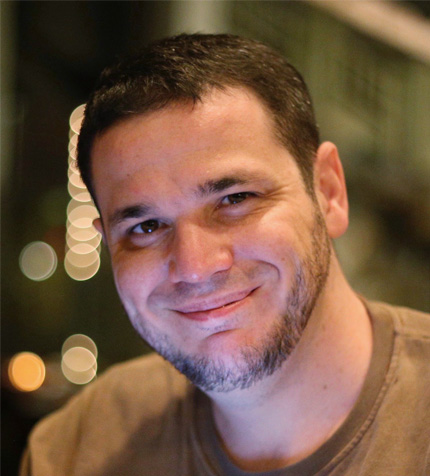
Freelance writer and analyst, founder of OSINT HK. OSINT HK is a volunteer group of open source Intelligence analysts investigating 2019 Hong Kong Protests.
What is this event? REVULN is a series of free private meetings for invited guests where participants attend the presentations of international speakers and connect with all the selected guests. The idea behind the events and their organization are unique, no conferences hosted by private companies have similar features. Information about the previous event are available here. Is this a marketing or promotional event? No, nobody is going to promote or sell you anything. The event has been created, planned and financed by us just for speakers and attendees, completely for free and without any business in mind. REVULN's goal is sharing knowledge and connecting people. What does 19Q4 stand for? 19Q4 stands for "REVULN 19 - 4th quarter" and it's also a possible reference to the dystopian novel 1984. How joining as speaker? Please check our Call for Papers page for information and requirements. No "paper" is requested, this is a Call for Speakers where you will be asked to provide your presentation only. How can I attend the event? The event is invitation-only with attendees selected by us or by other guests. We would like to sponsor the event. We do not accept sponsors or partners. We work for the press/media. Please send us an email if you would like to participate. How are the invited guests selected? The expected attendees directly invited by us are mainly from two categories: - media: journalists, reporters, writers, bloggers, press, news agencies, NGO - governments and law enforcement agencies: police forces, armed forces, military and defense, government owned/funded research organizations, police academies and universities, national CERTs, consulates and embassies, public sector Is there any political motivation? No, REVULN and its team are completely neutral and free from any political and ideological motivation and bias, no matter what are the countries and goals involved. This open minded attitude allows guests from very different and sometimes conflicting fields to attend a relaxed event focused on experiences and information. Are you going to record or stream the sessions? No, we take no video recordings of the event. I'm an invited guest and I would like to attend only some presentations. Sure, please check the agenda for the exact schedule of the presentation in which you are interested. Time is a valuable thing and we perfectly know how difficult may be for journalists to attend the full day. I'm a journalist, am I expected to provide media coverage of the event? No, we don't expect anything from our guests. If you will write about the event we appreciate it and we will be happy of that. The event is for you, not for what you are supposed to return back to us. Do I need a VISA for traveling to Hong Kong? People from many countries do not need any VISA for traveling to Hong Kong. Please check the Immigration website (Part II) for a complete list. Is Hong Kong safe? Currently the protests in the region are mainly limited to weekends only while the meeting is hold in the middle of the week. We are constantly monitoring the situation, Hong Kong is currently the perfect location at the perfect moment for discussing the topics of the event. How to reach the location of the event? The Best Western Plus Hong Kong hotel is located in Hong Kong Island, walking distance from exit B3 of Sai Ying Pun. Address: 308, Des Voeux Road West, Hong Kong Tel: +852 3410 3333 The event takes place in the Lily meeting room at 3/F, press 5 in the lift and proceed one floor down by staircase.Metro directions (Sai Ying Pun)Google Maps Reaching the hotel from the airport is easy: - buy a ticket for Hong Kong Station at the Airport Express booth (about 115 HK$), or use Octopus card - take the Airport Express train [PDF details] - get off at Hong Kong Station (the final stop) - take the H2 complimentary free shuttle bus - take off at stop 5 If you prefer the bus, take A12 (Water Street) or A10 (Chiu Kwong Street). Do I have to bring something with me? Your name cards (business cards). The mobile phone or laptop will be useful for consulting some material we plan to provide during the event. Wi-Fi will be available for sharing documents with the attendees, Internet is available too. The hotel already provides notepads, pens and water. Dress code? Casual or business is up to you, the event is meant to be informal and relaxed. T-shirt, (long) shorts and shoes are the bare minimum. Code of Conduct? Respect the others, no offenses, no aggressive and inappropriate behavior. This is a place where we plan to share our own experiences and connecting with people interested in the selected topics. I like the project, how can I contribute? Just with word of mouth. Feel free to share the Call for Papers and details of the event with your colleagues and people who may be interested in these topics. How can I contact the organizer with other questions? Please contact Luigi Auriemma by email, Twitter and LinkedIn, or Signal/Telegram: revuln Privacy Policy REVULN Privacy Policy for speakers and participants. Disclaimer This is a private meeting for invited guests only without any business, promotional activity and purpose. The event is completely not-for-profit and no incomes are generated from and during its execution. The presentations and slides are intellectual property of their authors, who are also the only responsible for such content. Free accommodation, when acknowledged by the organizer, is revoked if the speaker is not able to held the presentation in-person at the event. The organizer is not responsible for any loss, damage or other issues during the event.